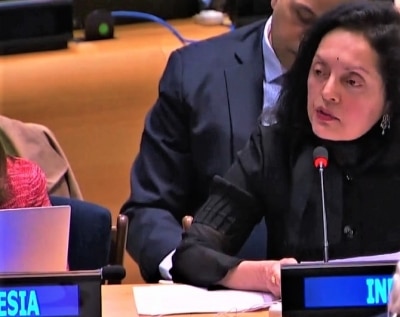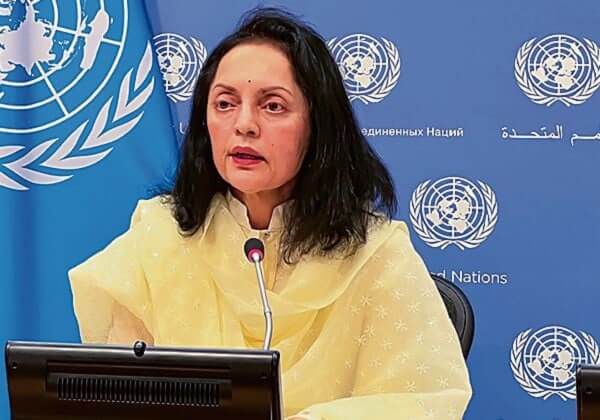India has called for more transparency and clarity in documents related to the United Nations (UN) Security Council reform about permanent seats for African states.
India’s Permanent Representative at the United Nations, Ruchira Kamboj, has called for clear attribution of groups and member states who do not support permanent seats for African states to expose their stance against the historically wronged continent.
Ruchira Kamboj said on Monday that “there needs to be a clear attribution of groups and member states” who “do not support permanent seats for African states and try to dilute their claim by inventing new categories like ‘regional permanent seats'”.
The strategy advocated by India would help differentiate countries like China and the members of the Uniting for Consensus (UfC) group, of which Pakistan is a leading member in relation to Africa, the largest regional group in the UN.
The 55 members from Africa have demanded at least two permanent seats for the continent, where most of the UN peacekeeping operations mandated by the Council take place. Speaking at a meeting of the Intergovernmental Negotiations (IGN) on Security Council Reforms, Kamboj said that records of members’ positions on reforms should use clearer terms and exact figures rather than saying vaguely “some members” and “other members”. This would show that 113 countries out of the 122 that made written submissions supported expanding the permanent membership of the Council.

Kamboj said that at this stage, only the expansion of the permanent membership was being considered rather than who would get them, which would be determined by a two-thirds vote in a secret ballot. She called on the co-chairs of the IGN, Permanent Representatives Tareq Albanai of Kuwait and Alexander Marschik, to create a negotiating text to move the reform process that has been stuck in a rut for decades.
The UfC has been the main barrier to adopting a negotiating text, a tactic to sabotage the process. “We would accordingly encourage the co-chairs to not get distracted by the arguments that irrationally call for consensus on all clusters before moving to text-based negotiations,” Kamboj said. Most of the countries whose representatives spoke at the meeting called for the adoption of a negotiating text.
India, Brazil, Germany, and Japan together form the G4 group that lobbies for expansion of the permanent membership of the Security Council that is mired in the post-World War II universe where the five victors assumed the veto-wielding permanent status. They also mutually support each other’s claims for a permanent seat on a reformed council.
Speaking on behalf of the G4, Japan’s Permanent Representative Ishikane Kimihiro said that those countries that do not want the Council’s permanent membership expanded “say that the historical injustice to Africa should be addressed or that equitable regional representation is important in general, but never articulate the obvious, namely that Africa should have permanent seats”.
“We all know who they are… The G4 reaffirms its full support for the Common African Position, and appropriate numbers for an increase in both categories can be further discussed during text-based negotiations,” he said.
Brazil’s Permanent Representative Ambassador Ronaldo Costa Filho said the co-chairs should assert their leadership and steer the IGN to take decisions. After years of disorganized and supposedly closed meetings, the IGN has started webcasting its meetings and creating records. Filho said these may be a small step for the IGN but are a “giant leap for Security Council reform”.
Following demands by India, the other G4 members, and several countries for transparency and record-keeping, the IGN has become open at the initiative of General Assembly President Csaba Korosi.
US Permanent Representative Linda Thomas Greenfield said, “The UN, as an institution, is at an inflexion point. The question before us is whether we will defend an outdated status quo or reform the Security Council and empower the UN to take on today’s global challenges. The Security Council needs to better reflect the world and geographically diverse perspectives. That’s why in his address during the General Debate last September, President Biden called for expansion of the permanent and non-permanent membership of the UN Security Council, including permanent seats for countries from Africa as well as from Latin America and the Caribbean.”
Read More: MEA criticised for slow execution to aid Indian women overseas





